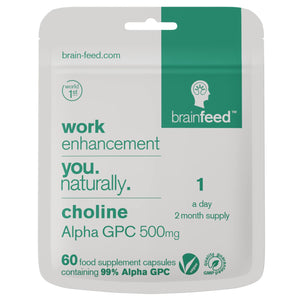How to be more productive: 5 expert tips to kickstart your day
filter
Starting your day productively can set the tone for the rest of your day. It can help you feel more energised, focused, and motivated to tackle your tasks at work or home. Wondering how to be more productive? This article is for you. Learn how optimising your productive morning routine for success can benefit you and discover the five tips backed by scientific research to start your day productively.
5 tips for a productive morning routine
1. Wake up: consistency is key
The first tip to start your day productively is establishing a consistent wake-up schedule. Our bodies have an internal clock, known as the circadian rhythm, which regulates our sleep-wake cycle. When we wake up at the same time every day, our body becomes accustomed to this routine, and it can help us feel more alert and energised throughout the day[1 Trusted Source 2017 - Journal of Clinical Sleep Medicine Human study Clinical Practice Guideline for the Pharmacologic Treatment of Chronic Insomnia in Adults: An American Academy of Sleep Medicine Clinical Practice Guideline ] . According to a study on student academic performance, individuals who wake up at the same time every day have better academic performance[2 Trusted Source 2017 - Scientific Reports Human study Irregular sleep/wake patterns are associated with poorer academic performance and delayed circadian and sleep/wake timing ] . Therefore, it is essential to establish a consistent wake-up schedule, even on weekends. At first, you’ll probably need an alarm clock to help you with that. With time, your body clock will adjust to the schedule, meaning you’ll be waking up at approximately the same time every day naturally.
2 . Is breakfast the most important meal of the day ? The evidence says yes
The second tip is breakfast, the most important meal of the day. It provides your body with the energy and nutrients needed to start the day. According to an extensive literature review, adults who eat breakfast have better memory, attention, and motor and executive functions such as organisation and problem-solving[3 Trusted Source 2016 - Advances in Nutrition Systematic and meta-analysis The Effects of Breakfast and Breakfast Composition on Cognition in Adults ] . Additionally, it is essential to limit caffeine intake, as too much caffeine can lead to jitters and anxiety, which can negatively impact productivity[4 Trusted Source 2022 - Nutrients Human study Caffeine Intake and Its Sex-Specific Association with General Anxiety: A Cross-Sectional Analysis among General Population Adults ] , [5 Trusted Source 2018 - U.S. Food & Drug Administration 3rd-party source Spilling the Beans: How Much Caffeine is Too Much? ] . You can also follow the popular neuroscientist and podcaster Andrew Huberman morning routine and wait 90 to 120 minutes before having a cup of coffee[6 Trusted Source 2023 - Mind Body Green Food 3rd-party source I Tried Huberman’s Coffee Rules For 6 Months & This Is What I Learned ] . Click here to read about how combining caffeine with a natural relaxant called theanine may be beneficial for you.
To start your day off productively, try having scrambled eggs or tofu for breakfast. Both dishes are full of choline, the building block of memory and learning chemical acetylcholine. It boosts your ability to work longer and the speed of your information recall[7 Trusted Source 2004 - Learning & Memory Research evaluation Changes in Acetylcholine Extracellular Levels During Cognitive Processes ] . There are different forms of choline and a very potent form of choline called Alpha GPC can cross the blood-brain barrier, directly supporting acetylcholine production[8 Trusted Source 2023 - Frontiers in Endocrinology Research evaluation Choline supplements: An update ] , [9 Trusted Source 2003 - Clinical Therapeutics Human study Cognitive improvement in mild to moderate Alzheimer's dementia after treatment with the acetylcholine precursor choline alfoscerate: a multicenter, double-blind, randomized, placebo-controlled trial ] , [10 Trusted Source 1991 - Journal of International Medical Research Human study A Multicentre Trial to Evaluate the Efficacy and Tolerability of α-Glycerylphosphorylcholine versus Cytosine Diphosphocholine in Patients with Vascular Dementia ] . brain feed’s world’s 1st 500mg Alpha GPC capsule contains 99% Alpha GPC. Get 15% off your 1st buy using ‘NEW15’ code at checkout.
3. Energise yourself for the day ahead
The third tip to start your day productively is to engage in morning exercise. Exercising in the morning increases your mental and physical stamina, provides energy and boosts motivation, leading to increased overall productivity[11 Trusted Source 2018 - Inc 3rd-party source The Scientific Reason Why Being A Morning Person Will Make You More Successful: The early bird catches more than the worm ] . According to an article published in Harvard Men’s Health Watch, working out causes your brain to secrete a chemical called BDNF or neurotrophic factor, which boosts brain function throughout the day[12 Trusted Source 2021 - Harvard Men’s Health Watch 3rd-party source Working out your brain ] . Therefore, it is essential to incorporate exercise into your morning routine which can be as simple as walking to work or unloading a dishwasher and doing a quick sweep of the house.
4 .Mindfulness helps you focus
The foruth tip to start your day productively is to engage in mindful meditation. Mindful meditation involves focusing on the present moment and observing your thoughts and feelings without judgment. It has numerous benefits, including reducing stress, improving focus, and increasing self-awareness[13 Trusted Source 2003 - Journal of Personality and Social Psychology Research evaluation The benefits of being present: Mindfulness and its role in psychological well-being. ] . According to a study published in the Journal of Occupational Health Psychology, individuals who engage in mindful meditation before work have better focus and productivity throughout the day[14 Trusted Source 2018 - Journal of Occupational Health Psychology Human study Mindfulness training improves employee well-being: A randomized controlled trial. ] . Therefore, it is essential to incorporate mindful meditation into your morning routine. This can be as simple as focusing on how you wash your teeth in the morning. Be mindful of how you hold and turn your toothbrush, how many times you brush a single tooth and how the toothbrush feels on your gums.
5.Newspapers are back in fashion
The fifth and final tip to start your day productively is to limit screen time in the morning. Many people are accustomed to checking their phones or emails first thing in the morning. However, this can lead to distractions and can negatively impact your focus and productivity[15 Trusted Source 2019 - Harvard Business Review 3rd-party source Stop Letting Push Notifications Ruin Your Productivity ] , [16 Trusted Source 2022 - AIS Transactions on Human-Computer Interaction Research evaluation Screen Time and Productivity: An Extension of Goal- setting Theory to Explain Optimum Smartphone Use ] . According to a study conducted on university students, individuals who are efficient in self-monitoring their phone usage and can limit screen time experience increased productivity which leads to an overall sense of contentment with achievement[16 Trusted Source 2022 - AIS Transactions on Human-Computer Interaction Research evaluation Screen Time and Productivity: An Extension of Goal- setting Theory to Explain Optimum Smartphone Use ] . Therefore, it is essential to limit screen time in the morning and focus on other activities, such as exercise, meditation, or reading. You could opt for a classical newspaper or magazine read while eating breakfast or commuting to work.
Starting your day productively can have numerous benefits for a healthier mind and soul that set the tone for a productive day. It’s essential to find a routine that works for you and stick to it as consistently as possible. And remember to enjoy it!
References
[1] Sateia, M. J., Buysse, D. J., Krystal, A. D., Neubauer, D. N., & Heald, J. L. (2017). Clinical Practice Guideline for the Pharmacologic Treatment of Chronic Insomnia in Adults: An American Academy of Sleep Medicine Clinical Practice Guideline. Journal of Clinical Sleep Medicine, 13(02), 307–349. https://jcsm.aasm.org/doi/10.5664/jcsm.6470
[2] Phillips, A. J. K., Clerx, W. M., O’Brien, C. S., Sano, A., Barger, L. K., Picard, R. W., Lockley, S. W., Klerman, E. B., & Czeisler, C. A. (2017). Irregular sleep/wake patterns are associated with poorer academic performance and delayed circadian and sleep/wake timing. Scientific Reports, 7(1), 3216. https://www.nature.com/articles/s41598-017-03171-4
[3] Galioto, R., & Spitznagel, M. B. (2016). The Effects of Breakfast and Breakfast Composition on Cognition in Adults. Advances in Nutrition, 7(3), 576S-589S. https://www.sciencedirect.com/science/article/pii/S2161831322007463?via%3Dihub
[4] Paz-Graniel, I., Kose, J., Babio, N., Hercberg, S., Galan, P., Touvier, M., Salas-Salvadó, J., & Andreeva, V. A. (2022). Caffeine Intake and Its Sex-Specific Association with General Anxiety: A Cross-Sectional Analysis among General Population Adults. Nutrients, 14(6), Article 6. https://www.mdpi.com/2072-6643/14/6/1242
[5] Spilling the Beans: How Much Caffeine is Too Much? (2018). U.S. Food & Drug Administration. https://www.fda.gov/consumers/consumer-updates/spilling-beans-how-much-caffeine-too-much
[6] Loewe, E. (2023). I Tried Huberman’s Coffee Rules For 6 Months & This Is What I Learned. Mind Body Green Food. https://www.mindbodygreen.com/articles/huberman-coffee-protocol-i-tried-it
[7] Pepeu, G., & Giovannini, M. G. (2004). Changes in Acetylcholine Extracellular Levels During Cognitive Processes. Learning & Memory, 11(1), 21–27. https://learnmem.cshlp.org/content/11/1/21
[8] Kansakar, U., Trimarco, V., Mone, P., Varzideh, F., Lombardi, A., & Santulli, G. (2023). Choline supplements: An update. Frontiers in Endocrinology, 14, 1148166. https://www.frontiersin.org/journals/endocrinology/articles/10.3389/fendo.2023.1148166/full
[9] De Jesus Moreno Moreno, M. (2003). Cognitive improvement in mild to moderate Alzheimer’s dementia after treatment with the acetylcholine precursor choline alfoscerate: A multicenter, double-blind, randomized, placebo-controlled trial. Clinical Therapeutics, 25(1), 178–193. https://www.clinicaltherapeutics.com/article/S0149-2918(03)90023-3/abstract
[10] Perri, R. D., Coppola, G., Ambrosio, L. A., Grasso, A., Puca, F. M., & Rizzo, M. (1991). A Multicentre Trial to Evaluate the Efficacy and Tolerability of α-Glycerylphosphorylcholine versus Cytosine Diphosphocholine in Patients with Vascular Dementia. Journal of International Medical Research, 19(4), 330–341. https://journals.sagepub.com/doi/10.1177/030006059101900406
[11] Garnett, L. (2018). The Scientific Reason Why Being A Morning Person Will Make You More Successful: The early bird catches more than the worm. Inc. https://www.inc.com/laura-garnett/the-scientific-reason-why-being-a-morning-person-will-make-you-more-successful.html
[12] Solan, M. (2021). Working out your brain. Harvard Men’s Health Watch, 26(5), 6–7. https://www.health.harvard.edu/exercise-and-fitness/working-out-your-brain
[13] Brown, K. W., & Ryan, R. M. (2003). The benefits of being present: Mindfulness and its role in psychological well-being. Journal of Personality and Social Psychology, 84(4), 822–848. https://psycnet.apa.org/doiLanding?doi=10.1037%2F0022-3514.84.4.822
[14] Slutsky, J., Chin, B., Raye, J., & Creswell, J. D. (2018). Mindfulness Training Improves Employee Well-Being: A Randomized Controlled Trial. Journal of Occupational Health Psychology, 24(1), 139–149. https://psycnet.apa.org/doiLanding?doi=10.1037%2Focp0000132
[15]Glaveski, S (2019). Stop Letting Push Notifications Ruin Your Productivity. Harvard Business Review. https://hbr.org/2019/03/stop-letting-push-notifications-ruin-your-productivity
[16] San Diego State University, Abhari, K., Vaghefi, I., & City University of New York. (2022). Screen Time and Productivity: An Extension of Goal- setting Theory to Explain Optimum Smartphone Use. AIS Transactions on Human-Computer Interaction, 14(3), 254–288. https://aisel.aisnet.org/thci/vol14/iss3/1/


 alertness
alertness
 cognition
cognition
 sleep
sleep
 wellbeing
wellbeing



Leave a comment
Open tab